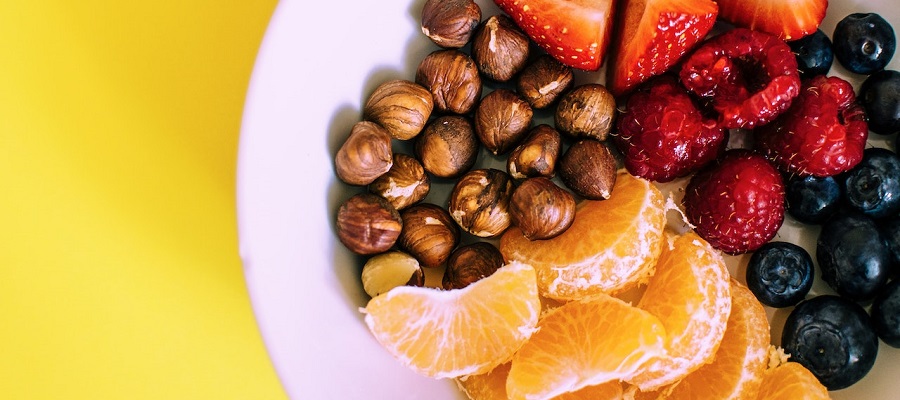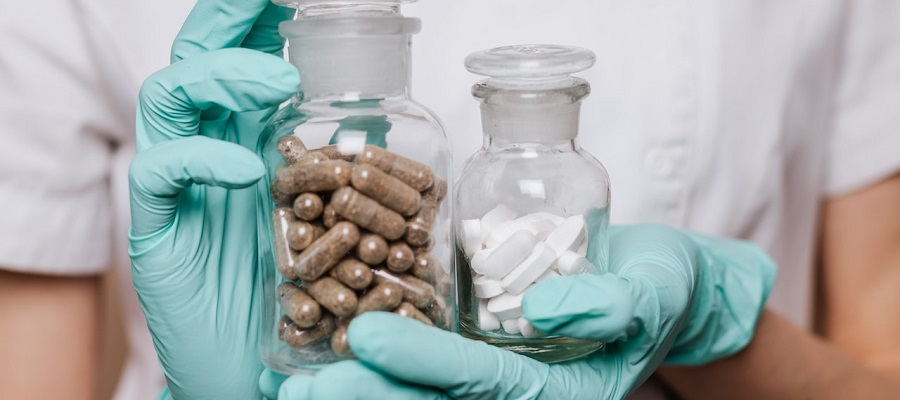Introduction
| Attribute | Description |
|---|---|
| Name | Vitamin B12 |
| Chemical Formula | C63H88CoN14O14P |
| Molecular Weight | 1,355.37 g/mol |
| Solubility | Water-soluble |
| Dietary Sources | Animal-based foods such as meat, fish, poultry, eggs, and dairy products; fortified plant-based foods for vegetarians and vegans |
| Functions | Essential for DNA synthesis, red blood cell formation, neurological function, and energy metabolism |
| Coenzymatic Form | Methylcobalamin and adenosylcobalamin |
| Deficiency Symptoms | Megaloblastic anemia, neurological problems, fatigue, and weakness |
| Recommended Intake | Adults: 2.4 micrograms/day |
| Toxicity | No known toxicity at normal dietary levels |
| Special Considerations | Individuals following a strict vegan diet may require B12 supplementation |
What is Vitamin B12?
Vitamin B12, also known as cobalamin, is a water-soluble vitamin that plays a crucial role in the proper functioning of the nervous system and the formation of red blood cells. It is one of the eight B vitamins and is essential for the body's metabolism.Vitamin B12 is naturally found in animal products such as meat, fish, poultry, eggs, and dairy products. It can also be obtained through supplements and fortified foods.
Why is Vitamin B12 Important?
Vitamin B12 is important for several reasons. Firstly, it helps in the formation of red blood cells, which carry oxygen throughout the body. A deficiency in vitamin B12 can lead to anemia, a condition where the body does not have enough red blood cells to carry oxygen to the tissues.Secondly, vitamin B12 is essential for the proper functioning of the nervous system. It helps in the production of myelin, a fatty substance that covers and protects nerve fibers. A deficiency in vitamin B12 can lead to nerve damage and neurological problems such as numbness, tingling, and difficulty walking.Thirdly, vitamin B12 plays a role in the metabolism of homocysteine, an amino acid that can be harmful to the body in high levels. High levels of homocysteine have been linked to an increased risk of heart disease, stroke, and dementia.Lastly, vitamin B12 is important for maintaining healthy skin, hair, and nails. It also helps in the production of DNA, the genetic material in cells.
Symptoms of Vitamin B12 Deficiency
A deficiency in vitamin B12 can lead to several symptoms, including:- Fatigue- Weakness- Pale skin- Shortness of breath- Numbness or tingling in the hands and feet- Difficulty walking- Memory loss- Confusion- Depression- DementiaThese symptoms can develop gradually over time and can be mistaken for other conditions. It is important to get tested for vitamin B12 deficiency if you experience any of these symptoms.
Who is at Risk of Vitamin B12 Deficiency?
Certain groups of people are at a higher risk of vitamin B12 deficiency than others. These include:- Vegetarians and vegans who do not consume animal products- Older adults who have a decreased ability to absorb vitamin B12 from food- People with gastrointestinal disorders such as Crohn's disease or celiac disease- People who have had gastrointestinal surgery- People who take certain medications such as proton pump inhibitors or metformin
How to Get Enough Vitamin B12
The recommended daily intake of vitamin B12 for adults is 2.4 micrograms. This can be obtained through a balanced diet that includes animal products such as meat, fish, poultry, eggs, and dairy products.For vegetarians and vegans, fortified foods such as breakfast cereals, plant-based milk, and nutritional yeast can provide vitamin B12. Supplements are also available in the form of pills, sublingual tablets, and injections.It is important to talk to a healthcare provider before taking any supplements, as high doses of vitamin B12 can be harmful.
Conclusion
Vitamin B12 is an essential nutrient that plays a crucial role in the proper functioning of the body. A deficiency in vitamin B12 can lead to several health problems, including anemia, nerve damage, and neurological problems. It is important to get enough vitamin B12 through a balanced diet or supplements, especially for those at a higher risk of deficiency. If you experience any symptoms of vitamin B12 deficiency, talk to a healthcare provider for testing and treatment.
Sources of Vitamin B12
| Food | Vitamin B12 Content per 100g (micrograms) |
|---|---|
| Clams | 98.9 |
| Liver (Beef) | 83.1 |
| Fish (Mackerel) | 19.0 |
| Octopus | 16.0 |
| Beef | 3.5 |
| Trout | 2.9 |
| Salmon | 2.4 |
| Tuna | 2.3 |
| Yogurt | 0.9 |
| Milk | 0.4 |
| Cheese (Swiss) | 0.4 |
| Eggs | 0.6 |
| Chicken | 0.3 |
| Pork | 0.7 |
| Fortified Cereals | Varies |
Vitamin B12 is an essential nutrient that plays a crucial role in the proper functioning of the nervous system and the production of red blood cells. It is also important for maintaining healthy skin, hair, and nails. However, the human body cannot produce vitamin B12 on its own, which means that we need to obtain it from external sources. In this blog post, we will discuss the different sources of vitamin B12.
Animal-Based Foods
The most common and reliable source of vitamin B12 is animal-based foods. This includes meat, poultry, fish, eggs, and dairy products. Animal-based foods are rich in vitamin B12 because the vitamin is produced by bacteria that live in the digestive tracts of animals. When we consume animal-based foods, we also consume the vitamin B12 produced by these bacteria.Among animal-based foods, liver and kidney are the richest sources of vitamin B12. A 3-ounce serving of cooked beef liver contains about 70 micrograms of vitamin B12, which is more than 1000% of the recommended daily intake. Other good sources of vitamin B12 include clams, salmon, tuna, chicken, eggs, and milk.
Fortified Foods
Fortified foods are another source of vitamin B12. Fortified foods are those that have had vitamin B12 added to them during processing. This is done to increase the vitamin B12 content of the food and make it more accessible to people who do not consume animal-based foods.Common fortified foods include breakfast cereals, plant-based milk alternatives, and nutritional yeast. These foods can be a good source of vitamin B12 for vegetarians and vegans who do not consume animal-based foods.
Supplements
Finally, supplements are another source of vitamin B12. Vitamin B12 supplements are available in various forms, including tablets, capsules, and injections. Supplements can be useful for people who have a vitamin B12 deficiency or who are unable to obtain enough vitamin B12 from their diet.There are two main types of vitamin B12 supplements: cyanocobalamin and methylcobalamin. Cyanocobalamin is the most common form of vitamin B12 supplement and is generally considered safe and effective. Methylcobalamin is a more bioavailable form of vitamin B12 and may be more effective for people with certain health conditions.In conclusion, vitamin B12 is an essential nutrient that is important for maintaining good health. Animal-based foods are the most reliable source of vitamin B12, but fortified foods and supplements can also be useful for people who do not consume animal-based foods or who have a vitamin B12 deficiency. If you are concerned about your vitamin B12 intake, talk to your doctor or a registered dietitian to determine the best sources of vitamin B12 for your individual needs.
Signs of Vitamin B12 Deficiency
Vitamin B12 is an essential nutrient that plays a crucial role in the proper functioning of the body. It is responsible for the production of red blood cells, DNA synthesis, and the maintenance of the nervous system. However, many people are deficient in this vitamin, which can lead to a range of health problems. In this blog post, we will discuss the signs of vitamin B12 deficiency.
Anemia
One of the most common signs of vitamin B12 deficiency is anemia. Anemia is a condition in which the body does not have enough red blood cells to carry oxygen to the tissues. Vitamin B12 is essential for the production of red blood cells, so a deficiency can lead to anemia. Symptoms of anemia include fatigue, weakness, shortness of breath, and pale skin.
Nerve Damage
Vitamin B12 is also important for the proper functioning of the nervous system. A deficiency in this vitamin can lead to nerve damage, which can cause a range of symptoms. These symptoms may include tingling or numbness in the hands and feet, difficulty walking, and muscle weakness. In severe cases, nerve damage can lead to paralysis.
Cognitive Impairment
Vitamin B12 is also important for cognitive function. A deficiency in this vitamin can lead to cognitive impairment, which can cause problems with memory, concentration, and other cognitive functions. In severe cases, cognitive impairment can lead to dementia.In conclusion, vitamin B12 deficiency is a serious health problem that can lead to a range of symptoms and health problems. If you are experiencing any of the symptoms mentioned above, it is important to speak with your healthcare provider. They can perform a blood test to determine if you are deficient in vitamin B12 and recommend appropriate treatment.
Who is at Risk of Vitamin B12 Deficiency?
Vegans and Vegetarians
Vitamin B12 is an essential nutrient that plays a crucial role in the proper functioning of the nervous system and the production of red blood cells. Unfortunately, this vitamin is found almost exclusively in animal-based foods, which means that vegans and vegetarians are at a higher risk of developing a deficiency.While some plant-based foods, such as fortified cereals and nutritional yeast, may contain vitamin B12, they are not reliable sources. Vegans and vegetarians should consider taking a vitamin B12 supplement or consuming fortified foods regularly to ensure they are meeting their daily requirements.
Elderly Individuals
As we age, our bodies become less efficient at absorbing nutrients from food. This is especially true for vitamin B12, which requires adequate stomach acid and intrinsic factor (a protein produced in the stomach) for absorption. Elderly individuals are more likely to have low levels of stomach acid and intrinsic factor, which can lead to a vitamin B12 deficiency.In addition, many elderly individuals may have a limited diet due to dental problems, difficulty swallowing, or other health issues. This can make it challenging to consume enough vitamin B12 through food alone. As a result, elderly individuals may benefit from a vitamin B12 supplement or fortified foods.
Individuals with Gastrointestinal Disorders
Certain gastrointestinal disorders, such as Crohn's disease, celiac disease, and atrophic gastritis, can interfere with the absorption of vitamin B12. In these cases, even if an individual is consuming enough vitamin B12 through their diet, their body may not be able to absorb it properly.Individuals with gastrointestinal disorders may need to take a vitamin B12 supplement or receive injections to ensure they are getting enough of this essential nutrient. It is important to work with a healthcare provider to determine the appropriate dosage and form of vitamin B12 supplementation.In conclusion, vegans and vegetarians, elderly individuals, and individuals with gastrointestinal disorders are all at a higher risk of developing a vitamin B12 deficiency. It is important to be aware of the signs and symptoms of a deficiency, which can include fatigue, weakness, numbness or tingling in the hands and feet, and difficulty walking. If you suspect you may have a vitamin B12 deficiency, speak with your healthcare provider about testing and appropriate treatment options.
How to Get Enough Vitamin B12
Supplements
Vitamin B12 is an essential nutrient that plays a crucial role in the proper functioning of the nervous system and the production of red blood cells. It is found naturally in animal products such as meat, fish, and dairy, but some people may not get enough of it through their diet alone. In such cases, supplements can be a good option to ensure adequate intake of this important vitamin.There are several types of vitamin B12 supplements available, including pills, capsules, and sublingual tablets. The most common form is cyanocobalamin, which is a synthetic form of the vitamin. However, there are also other forms such as methylcobalamin and adenosylcobalamin, which are considered to be more bioavailable and may be better absorbed by the body.When choosing a vitamin B12 supplement, it is important to consider the dosage and the form of the vitamin. The recommended daily intake of vitamin B12 for adults is 2.4 micrograms, but some people may require higher doses depending on their age, health status, and dietary habits. It is also important to choose a reputable brand and to follow the instructions on the label.
Dietary Changes
In addition to supplements, there are also dietary changes that can help increase your intake of vitamin B12. As mentioned earlier, animal products such as meat, fish, and dairy are the best sources of this vitamin. However, there are also some plant-based foods that are fortified with vitamin B12, such as breakfast cereals, plant-based milks, and nutritional yeast.If you follow a vegan or vegetarian diet, it is important to pay close attention to your vitamin B12 intake, as plant-based foods do not naturally contain this nutrient. In such cases, fortified foods and supplements may be necessary to ensure adequate intake.It is also important to note that certain medical conditions and medications can affect the absorption of vitamin B12. For example, people with gastrointestinal disorders such as Crohn's disease or celiac disease may have difficulty absorbing this vitamin from food. In such cases, supplements may be necessary to ensure adequate intake.In conclusion, vitamin B12 is an essential nutrient that plays a crucial role in the proper functioning of the body. While it is found naturally in animal products, some people may not get enough of it through their diet alone. Supplements and dietary changes can help increase your intake of this important vitamin and ensure optimal health.


